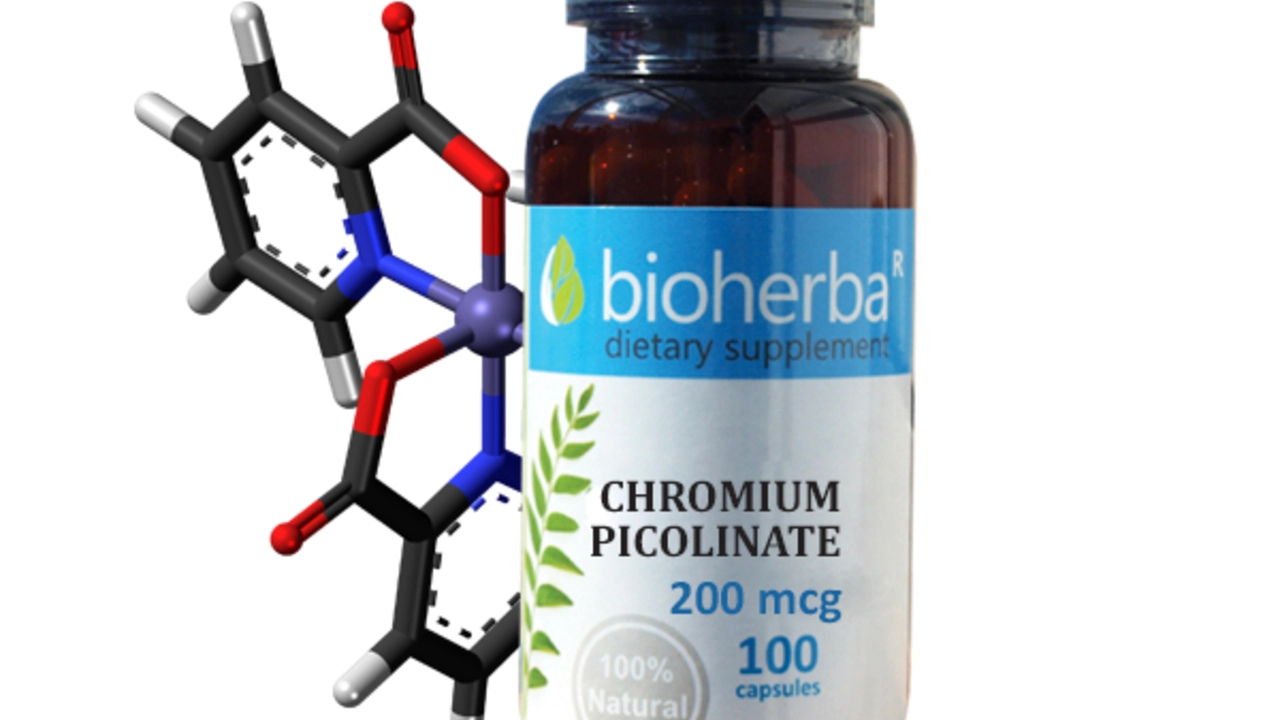Chromium: What It Does, Food Sources, and Safe Supplement Use
Did you know chromium helps your body use insulin and manage blood sugar? If you're curious about chromium supplements or wondering whether your diet gives you enough, this page will answer common questions in plain language. You'll get quick facts, food tips, recommended doses, and safety checks so you can make a smart choice.
How chromium helps your body
Chromium is a trace mineral. Your body needs tiny amounts to help insulin move glucose into cells. That makes it important for blood sugar control. People with low chromium levels may notice worse blood sugar regulation. Some studies show chromium picolinate can slightly improve glucose control in people with type 2 diabetes, but results vary.
Chromium also plays a role in metabolism and may support healthy cholesterol levels, though evidence is mixed. It won't replace medication for diabetes. Think of chromium as a small helper, not a cure. For most healthy people, the effects are modest.
Food sources, deficiency signs, and who might need supplements
You get chromium from food like broccoli, whole grains, nuts, green beans, and lean meats. Brewer's yeast and some seafood are good sources too. Processing and high-sugar diets can lower chromium in food, so whole foods are better.
Signs of deficiency are subtle: low energy, trouble with blood sugar, and altered cholesterol. True chromium deficiency is rare in people who eat a balanced diet. Supplements are typically considered if you have type 2 diabetes, poor intake, or special medical needs—but check with your doctor first.
Choosing a supplement and dose matters. Chromium picolinate is the most common form used in studies. Typical doses range from 50 mcg to 200 mcg daily. Some clinical trials use up to 1,000 mcg, but higher doses raise the risk of side effects. Stick to the lowest dose that gives benefit and follow label directions.
Watch for interactions. Chromium can affect blood sugar levels, so if you take insulin or oral diabetes drugs, monitor your glucose closely and talk to your provider before starting a supplement. Chromium may also interact with certain heart or thyroid medications. Pregnant and breastfeeding people should avoid high-dose supplements unless advised by a clinician.
Side effects are usually mild: stomach upset, headaches, or skin irritation. Serious problems are rare but possible with long-term high doses. If you notice muscle weakness or breathing trouble, stop the supplement and seek medical care.
Want practical steps? Focus on whole foods first: add a few servings of broccoli or whole grains daily. If you consider supplements, choose a reputable brand, start low (50–200 mcg), and recheck your blood work in a few months. Always tell your healthcare provider about any new supplement.
Chromium can help in small but real ways for some people. Use it thoughtfully, avoid high doses, and pair supplements with a healthy diet and regular medical care. If you have questions, bring a list of your meds to your next appointment. It helps avoid surprises and risks.

